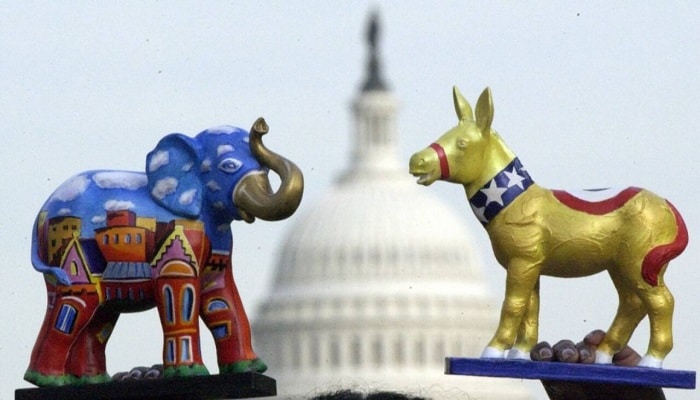PNN – “Foreign Policy” wrote in an analytical article: The American parties do not have much power to determine the foreign policy approaches of its governments, and the plans that are explained to the voters in the election campaigns of the candidates as the path of the future American government, will be forgotten by the president himself and his close circle.
According to the report of Pakistan News Network, “Stephen M. Walt”, a prominent theorist of the international arena and a columnist of the Foreign Policy magazine, in this analysis pointed to the different platforms of the two Republican and Democratic parties that were raised about the foreign policy of the candidates of these two parties in each party’s convention: Many of these guidelines will not be implemented by the next administration – President Donald Trump or Kamala Harris.
In a part of this analysis, it is stated in the description of what is the platform of political parties: Platforms are mainly a reflection of who holds the political power of the parties and express them in writing in a document. As for the Republican Party, its 2024 platform represents Trump’s near-total control of what was once a massive, fundamentalist political organization. The Democratic platform, on the other hand, reflects the core foreign policy commitments of interest groups and key stakeholders—and especially big donors. That’s why he has developed a positive approach to Biden’s thoroughly mixed record and rejects trade policies. This was the position that emptied the American supply chain and instead of valuing the workers, it improved the situation of the CEOs of the companies and failed to create inclusive economic growth. The Democratic platform, on the other hand, while rejecting “permanent wars,” still portrays a world in which all regions are vital to American interests and insists that the United States must continue to lead on the world stage. A subject that can be called “liberal hegemony”.
Read more:
Walt went on to express his reasons for ignoring the importance of these platforms in determining American foreign policy and wrote: The first and most obvious reason is that presidents have a lot of freedom when it comes to foreign policy and don’t have to follow what’s written to win a campaign or attract donations. Although presidents cannot simply ignore what their core supporters or other interest groups want, they are not committed to them either. They need the support of Congress to pass budgets and approve their domestic agendas, but what a president does in foreign and defense policy is largely independent.
In another part of the reasons for his claim that party documents are ineffective in the performance of American presidents in international affairs, the author wrote: Key foreign policy decisions will not be made by the influential platform-writing committee, powerful party figures in Congress, or prominent governors and party chairmen. Rather, these decisions are made by a small inner circle of the president’s aides and appointees who are chosen mainly because of their loyalty to him and alignment with his worldview.
Walt added: The third reason is that the arguments and positions that may be positive in a party program and play an effective role in the election campaign, often after the end of the election and the establishment of a government, will not have the intended effect. For example, during the 1992 election campaign, Democratic candidate Bill Clinton repeatedly criticized then-President George HW Bush for ignoring human rights abuses in China. But as president, he realized that his leverage over Beijing was limited and he had to downplay this issue. Also, the platform of the Democratic Party in 2020 strongly criticized the tariffs against China and the withdrawal from the 2015 nuclear agreement with Iran. But Biden kept many of the Trump-era economic restrictions in place during his presidency and never followed through on his campaign pledge to re-enter the Comprehensive Joint Action Plan with Tehran.
Another part of this analysis states: Party platforms are misleading because they promise too much and are not very actionable. They are a list of things that a party wants to convince you they will do if they win, so they downplay or remove all the political obstacles that make these goals difficult to achieve. Although presidents have considerable personal authority in implementing foreign policy, they must still contend with entrenched bureaucracies (especially in the Department of Defense) and pushback from interest groups, lobbies, and the media. However, the most important reason to ignore party plans is that no campaign can predict what will happen once its candidate is in office. The United States is no longer the only major global player, and amazing events are happening all the time. Just as former President George W. Bush failed to foresee the events of 9/11, Barack Obama struggled with the Arab Spring, Donald Trump was caught in the trap of Covid, and Joe Biden’s foreign policy was mired in war in Ukraine and the Middle East.
In the end, Foreign Policy wrote: Whoever wins the U.S. election in November will face big problems that are certainly not listed in their party’s platform, and no one is going to look to this document for guidance on how to respond to future issues. What the party platforms don’t say is what the next president will do after January 2025, and after the election is over, no one will reconcile the performance of the US government with this party document.

